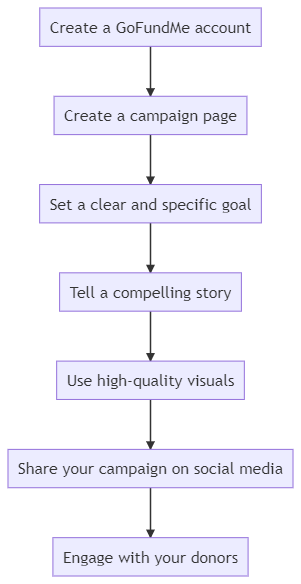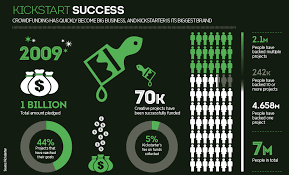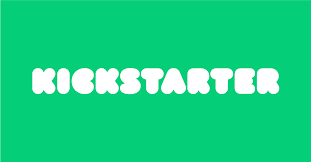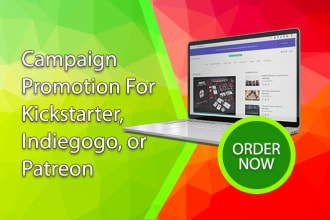
When it comes to raising capital for your business, there are many options available. Two popular choices are equity crowdfunding and Kickstarter. While both options can help you raise funds, they differ significantly. This article will explore the differences between equity crowdfunding and Kickstarter to help you decide which option is best for your business.
What is Equity Crowdfunding?
Equity crowdfunding is a way for businesses to raise capital by selling ownership stakes to investors. These investors can be anyone, from individuals to institutions. In exchange for their investment, investors receive equity in the company. Equity crowdfunding campaigns are typically hosted on online platforms that connect businesses with investors.
One of the main benefits of equity crowdfunding is that it allows businesses to raise large sums of money quickly. This is because companies can reach many potential investors through online platforms. Additionally, equity crowdfunding can help companies to build a community of supporters invested in their success.
What is Kickstarter?
Kickstarter is a platform that allows individuals and businesses to raise funds for creative projects. Unlike equity crowdfunding, that raised through Kickstarter does not involve the sale of ownership stakes. Instead, backers pledge money in exchange for rewards, such as early access to a product or a limited edition version of the project.
Kickstarter is best suited for creative projects that have a tangible end product, such fund projects such as a film or a piece of artwork. Projects launched on Kickstarter typically have a set funding goal and a limited fundraising timeframe.
Equity Crowdfunding vs. Kickstarter: What’s the Difference?
The main difference between equity crowdfunding and Kickstarter is how funds are raised. Equity crowdfunding involves the sale of ownership stakes to investors, while Kickstarter involves the Kickstarter concept of campaigns’ collection of pledges in exchange for rewards.
Equity crowdfunding is best suited for businesses that need to raise a large amount of capital quickly. It is also a good option for companies that want to build a community of supporters invested in their success.
“Kickstarter project is a well-funded site best suited for creative projects with a tangible end product. It is also a good option for businesses that want to test the market demand for a product before investing in its development.

Which Option is Right for Your Business?
The choice between equity crowdfunding and Kickstarter ultimately depends on your business’s goals and needs. For example, equity crowdfunding may be the better option if you need to raise capital quickly and want to build a community of supporters. On the other hand, if you have a creative project with a tangible end product and want to test market demand, Kickstarter may be the better option.
When considering which option is right for your business, it’s essential to weigh the benefits and drawbacks of each carefully. Additionally, it may be helpful to consult with a financial advisor or attorney specializing in crowdfunding, among other things.
Welcome to our comprehensive video guide of videos on crowdfunding and one of its most popular platforms, Kickstarter. In this video guide, we have videos that will take you through everything you need to know about crowdfunding, how Kickstarter works, and the benefits of using this well-funded platform for your project.
What is Crowdfunding?
Crowdfunding is funding a project or venture by raising small amounts of money from many people, typically via the Internet. This funding method has become increasingly popular recently, with many individuals and businesses turning to crowdfunding to finance their projects.
How does Kickstarter work?
Kickstarter is a popular crowdfunding platform that allows creators to post their project ideas and solicit funding from the public. Unfortunately, the funding platform often operates on an all-or-nothing basis, meaning that a project must meet its funding goal within a set period, or it will not receive any further funds raised.
To start a project on Kickstarter, a creator must first submit their idea to the platform and set a funding goal. They then create a campaign page on the company or site, a page where they can provide detailed information about their project, including its purpose, budget, due date, and timeline.
Once the project page is live on the crowdfunding site, creators can begin promoting it to potential backers, who can contribute funds to the project page in exchange for rewards, such as early access to the product or a special edition.

Benefits of Using Kickstarter
Kickstarter offers several benefits to creators who use the platform to fund their projects. Firstly, it provides a way to validate your idea and gauge interest in your product before investing significant time and resources.
Secondly, Kickstarter provides creators, filmmakers, and musicians access to a large audience of potential backers, which can help generate buzz and publicity for their projects.
Thirdly, Kickstarter allows creators to develop and make games and maintain creative control over their games and projects. They are all funded and not beholden to investors or lenders who may have conflicting interests.
Finally, Kickstarter provides creators with an alternative funding source to being funded through traditional investment methods, which may be difficult to obtain for new or unproven ideas and commercial products.

Expanding on Kickstarter’s Benefits
In addition to the benefits discussed earlier, Kickstarter provides creators with several other advantages. For one example, Kickstarter allows creators to set their own funding goals and timelines, which gives them more control over their projects.
Furthermore, Kickstarter’s page can serve as a valuable marketing tool for creators, providing a platform to showcase their work and attract potential customers. By creating a compelling campaign page with engaging content, videos, music, art, and visuals, creators can grab the attention of potential backers and generate interest in their projects.
Kickstarter also offers a built-in community of backers interested in supporting creative arts projects. This community can provide the art creators with feedback, inspiration, and support throughout the campaign, which can be invaluable in refining and improving their art projects.
Additionally, for games, Kickstarter can be a valuable source of funding for creators who may not have access to traditional funding sources, such as venture capital or bank loans. By leveraging the power of the crowd, creators of games and videos can secure the funding they need to bring their ideas, videos, and fun to life.
Overall, Kickstarter provides the world with a unique and powerful platform for creators to fund their projects and engage with a community of like-minded individuals. By taking advantage of Kickstarter’s benefits, creators can bring their ideas to life and make a lasting impact on the world.
Tips for a Successful Kickstarter Campaign
Now that you understand the benefits of using Kickstarter for your project let’s look at some tips for running a successful Kickstarter campaign.
- Start with a Strong Idea: Make sure your idea is compelling and well-defined before launching a campaign. A strong argument will attract backers and generate interest in your project.
- Set Realistic Funding Goals: When setting your funding goals, consider the cost of producing your product or completing your project. In addition, it’s essential to develop a plan that is both realistic and achievable, as backers are more likely to support projects that have a clear path to success.
- Create a Compelling Campaign Page: Your campaign page is your chance to make a first impression on potential backers. Be sure to include high-quality visuals, a clear and concise project description, and engaging rewards for backers.
- Promote Your Project Widely: To attract many backers, it’s essential to promote your project widely. Use social media, email marketing, and other channels to spread the word about your campaign and generate interest.
- Engage with Backers: Throughout your campaign, engage with your backers and respond to their questions and comments. This can help to build a sense of community around your project and generate enthusiasm among your supporters.
- Provide Regular Updates: Keep your backers informed about the progress of your project by providing regular updates. This can help to maintain their interest and keep them engaged throughout the campaign.
By following these tips and leveraging the power of Kickstarter, you can successfully fund your project and make a lasting impact on the world.

Specific needs and goals of your business.
When choosing between equity crowdfunding and Kickstarter, it’s essential to consider your business’s specific needs and goals. For example, equity crowdfunding may be a better fit if you’re looking to raise a significant amount of capital quickly and want to build a community of supporters who are invested in your success.
On the other hand, if you have created a creative project with a tangible end product and want to test market demand before investing in its development, Kickstarter may be a better option for a company or organization than you. Additionally, Kickstarter can be a great way to build buzz around your company or project and generate interest from potential customers.
When choosing between equity crowdfunding and Kickstarter, one crucial factor is the legal and financial complexity level involved. Equity crowdfunding typically involves the sale of ownership stakes, which can be more complex and may require the involvement of attorneys and financial advisors.
*Kickstarter campaigns, on the other hand, are typically more uncomplicated and more straightforward, as it involves the collection of pledges in exchange for tangible rewards only. However, ensuring a solid understanding of running a Kickstarter campaign’s legal and financial implications is essential.
In conclusion, both equity crowdfunding and Kickstarter can be effective ways to raise funds for your business. By carefully considering your website, specific needs, and goals and weighing the benefits and drawbacks of each option, you can choose the one best suited for your business’s needs.

Kickstarter vs. Other Crowdfunding Platforms
While Kickstarter is one of the most popular crowdfunding platforms, it’s not the only option for creators. Let’s take a look at some of the key differences between Kickstarter and other popular crowdfunding platforms.
Indiegogo:
Indiegogo is a crowdfunding platform that operates similarly to Kickstarter. However, Indiegogo offers more flexibility regarding the projects that can be launched and funded. For example, Indiegogo allows creators to launch campaigns for charity or personal causes, which may not be allowed on Kickstarter. Indiegogo also offers a “flexible funding” option, which allows project creators to keep the funds raised even if they don’t reach their funding goal.
GoFundMe:
GoFundMe is a popular crowdfunding platform primarily used for charitable causes and personal fundraising. While GoFundMe may not be suitable for creative art, photography, or music projects alone, it can be a powerful tool for raising funds for personal causes or supporting social causes.
Patreon:
Patreon is a unique crowdfunding platform designed to support creative projects. Unlike Kickstarter, which is focused on one-time funding for a specific project, Patreon allows creators to have projects based and receive continuing support from fans and backers. This can be an excellent option for creators looking to build a community around their work and generate ongoing revenue.
Overall, each crowdfunding site and platform has its strengths and weaknesses. When choosing a platform, it’s important to consider the specific needs of your project creator or organization, your project, and the audience you’re trying to reach.
Conclusion
In conclusion, Kickstarter is a powerful crowdfunding platform that allows creators, musicians, filmmakers, and artists to fund their projects and generate buzz and publicity for creative work. Furthermore, using Kickstarter, creators and artists can validate their ideas, maintain creative control, and access a large audience of potential backers. We hope that this guide has helped you understand how Kickstarter works and the benefits it can provide to creators.
CoopBusiness is a revolutionary cooperative business-building platform that empowers individuals to become entrepreneurs, business owners, and financially independent.
As a member, you’ll receive top-level business mentorship, access to our proprietary business systems, and the opportunity to access the funds you want to turn your business ideas into reality.